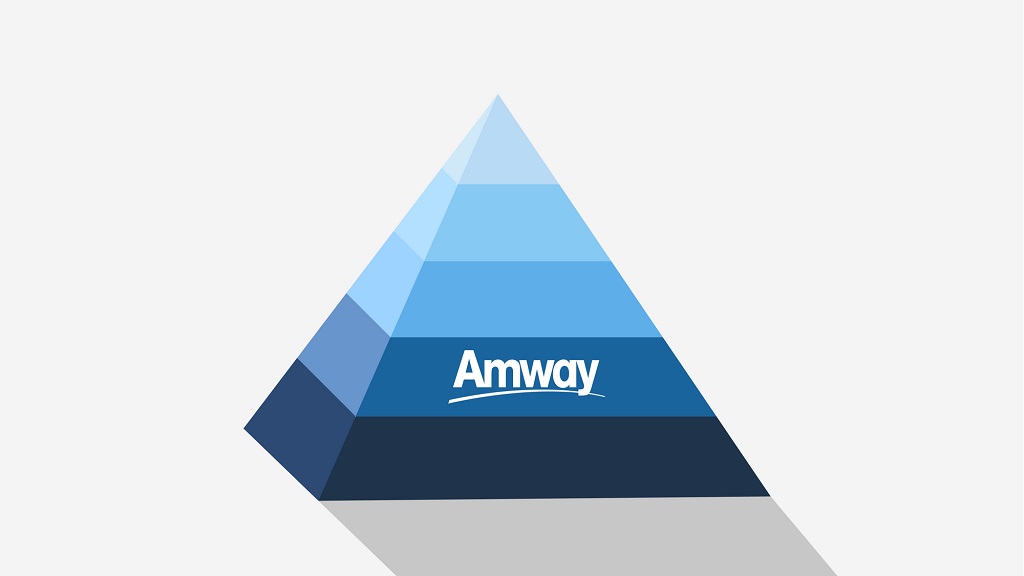Amway is not a pyramid scheme but a legitimate multi-level marketing company. Amway is a well-established and reputable multi-level marketing (MLM) company that has been in operation for over 60 years.
Since its founding in 1959, Amway has grown into a global enterprise with a wide range of consumer products, including health, beauty, and home care items. Despite some misconceptions, Amway operates on a direct selling model, where independent distributors earn income by selling products to customers and building a network of distributors.
While the MLM industry has faced criticism in the past, Amway has consistently maintained its status as a legitimate business opportunity and is not considered a pyramid scheme. Amway adheres to strict ethical standards and has been a member of various industry associations, such as the Direct Selling Association, further solidifying its credibility in the market.
Understanding Pyramid Schemes
Before delving into the question of whether Amway is a pyramid scheme, it is important to understand clearly what a pyramid scheme is. Pyramid schemes are illegal business models that promise participants large profits primarily based on recruiting others into the scheme, rather than selling actual products or services. These schemes often appear attractive as they promise quick and easy money-making opportunities, but in reality, they are unsustainable and can lead to financial loss for participants. Discussions on these topics, including whether is AlphaSights a consulting firm or not, are frequently featured on resources like https://linkfeel.com/, which provides insights into various business models and their legitimacy.
What Are Pyramid Schemes?
Pyramid schemes are fraudulent business models that prioritize recruitment over product sales. Participants are typically required to make an initial investment or buy into the scheme by purchasing a starter kit or inventory, promising to earn substantial profits by recruiting others into the scheme. The recruits, in turn, are also encouraged to recruit more participants, creating a pyramid-like structure where the majority of the profits flow to those at the top while those at the bottom struggle to make any money.
Key Characteristics
Several key characteristics can help identify whether a business model is a pyramid scheme:
- Emphasis on recruitment: Pyramid schemes primarily focus on recruiting new participants rather than selling legitimate products or services. The more recruits a participant brings in, the higher their chance of earning profits.
- High start-up costs: Pyramid schemes often require participants to invest a significant amount of money upfront to join the scheme. This can include purchasing expensive starter kits or inventory that may be difficult to sell or use.
- The promise of quick and easy money: Pyramid schemes lure participants with promises of fast and effortless wealth. They often use testimonials or success stories of individuals who claim to have made large sums of money quickly.
- Lack of genuine product sales: In pyramid schemes, the focus is on recruiting rather than selling products or services. The products may be of low quality, overpriced, or have limited demand outside the scheme.
- Unsustainable compensation structure: Pyramid schemes cannot sustain the payment of high commissions to a growing number of participants solely based on recruitment. Eventually, the scheme collapses, leaving most participants with financial losses.
Understanding these key characteristics can help individuals assess whether a particular business opportunity or company operates as a pyramid scheme. By being aware of the red flags, it is possible to avoid falling victim to these fraudulent practices.
Exploring Amway
Amway, a direct selling company, has faced criticism regarding its business model. While some argue it resembles a pyramid scheme, Amway maintains its legitimacy through product sales and independent distributors. Explore the intricacies of Amway to form your perspective.
History Of Amway
Amway, short for “American Way,” was founded in 1959 by Jay Van Andel and Richard DeVos. Starting as a small business selling nutritional supplements, Amway has grown into a multi-billion dollar global conglomerate. The company’s roots can be traced back to a basement in Michigan, where Van Andel and DeVos embarked on their entrepreneurial journey.
With their innovative direct-selling approach, the duo made Amway a household name in the United States and beyond. Over the years, Amway expanded its product line to include personal care items, cosmetics, cleaning products, and even home appliances. Today, Amway operates in more than 100 countries, with millions of people associated with the brand as independent distributors.
Business Model
Amway’s business model centers around direct selling, also known as network marketing. This model involves individuals becoming Amway distributors and earning income by selling products directly to consumers. As distributors, they can also recruit others to join the business and build their own sales teams.
The key element of Amway’s business model is the concept of “downline” – the people recruited by a distributor and those recruited by them. Distributors earn commissions not only from their direct sales but also from the sales generated by their downline. This creates a network of distributors working together to promote and sell Amway products.
One unique aspect of Amway’s business model is its focus on personal development. Distributors are encouraged to attend workshops and training sessions to enhance their sales and leadership skills. The company provides educational materials and support to help distributors succeed in their business ventures.
Amway also offers a compensation plan that allows distributors to earn bonuses and rewards based on their sales volume and the performance of their downline. The more successful a distributor is in building a thriving network, the greater their earning potential with Amway.
Is Amway A Pyramid Scheme?
Wondering whether Amway is a pyramid scheme? Let’s dive into the controversies, allegations, and legal perspective to debunk the mystery.
Controversies And Allegations
Amway has faced scrutiny over the years, with numerous allegations claiming that its business model resembles a pyramid scheme.
Critics argue that the company primarily profits from recruiting new members rather than the sale of actual products, a hallmark of pyramid schemes. However, Amway contends that its focus is on product sales and that members earn based on their sales volume, not recruitment.
Legal Perspective
In the legal realm, Amway has encountered multiple investigations and lawsuits alleging it operates as a pyramid scheme. However, the company has successfully defended itself, with courts ruling that its business model complies with legal standards, distinguishing it from illegal pyramid schemes.
Critics persist in their push for more stringent regulations and oversight of multi-level marketing companies like Amway, while the company continues to emphasize its commitment to ethical business practices.
The Truth About Amway
Amway, a direct-selling company founded in 1959, has long been a topic of debate. Some people view it as a legitimate business opportunity, while others question its legitimacy, often labeling it as a pyramid scheme. In this blog post, we aim to uncover the truth about Amway and shed light on the various aspects surrounding the company.
Success Stories
One aspect that is often highlighted by Amway enthusiasts is the success stories of its distributors. These success stories serve as a testament to the earning potential within the company’s business model. Many distributors have achieved significant financial success and have shared their stories of personal growth and entrepreneurship.
One prime example is the story of Mike and Debbie, a married couple who started their Amway business part-time while working full-time jobs. Through hard work, determination, and leveraging the support and mentorship provided by Amway, they were able to gradually transition into full-time entrepreneurship and achieve financial freedom.
Similarly, Sarah, a single mother, was able to support her family and provide a better future for her children through her Amway business. She took advantage of the flexibility offered by the company and used the power of networking to build a successful business that not only brought financial stability but also allowed her to spend more time with her children.
Criticism And Consumer Complaints
However, despite the success stories, Amway has faced criticism and consumer complaints over the years. Many of the criticisms revolve around the structure of the company’s business model, which some argue resembles a pyramid scheme.
Some individuals claim that the emphasis on recruiting new distributors and earning commissions from their sales rather than focusing on selling actual products is a red flag. They argue that this creates a reliance on continuous recruitment to generate income rather than promoting the quality and value of the products themselves.
Additionally, there have been consumer complaints about the prices of Amway products, with some claiming they are overpriced compared to similar products available in the market. Others have expressed dissatisfaction with the company’s refund policy and the difficulty in canceling subscriptions.
It is important to note that while these criticisms and complaints exist, Amway has taken steps to address them and improve its business practices. They have implemented training programs, compliance guidelines, and enhanced customer support to mitigate these concerns and ensure a better experience for their distributors and customers.
Frequently Asked Questions For Is Amway A Pyramid Scheme
Is Amway A Pyramid Scheme?
No, Amway is not a pyramid scheme. It operates using a direct selling model where distributors earn through commission on product sales and not by recruiting others. Pyramid schemes primarily focus on recruiting new members without any product or service involved, while Amway provides a wide range of products to its customers.
Conclusion
In light of the information presented, it’s important to evaluate the structure and operations of Amway carefully. While the company operates within the boundaries of the law, its multi-level marketing model raises concerns for some. Considering both the positive and negative aspects is crucial for making an informed decision about involvement with Amway, as understanding what makes a pyramid scheme illegal can help individuals assess the legitimacy of the business model and avoid potential legal pitfalls.



